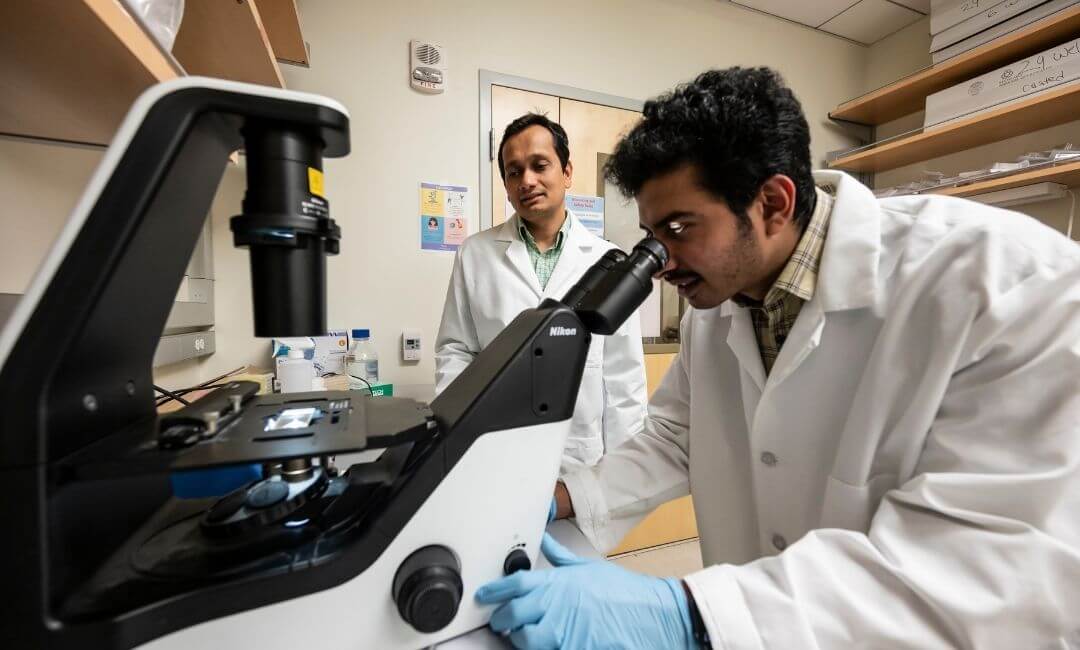The CCVI’s primary goals include:
- Developing cross-disciplinary program level research that integrates basic and translational research in inflammation.
- Advancing clinical studies and trials in collaboration with physicians in the Heart and Vascular Institute (HVI).
- Recruiting new faculty members with expertise in inflammation research.
- Establishing novel core facilities to support data generation for research grants and manuscripts.
- Providing mentorship to junior investigators interested in inflammation research.
The Center for Cardiovascular Inflammation will integrate with existing research centers within the Vascular Medicine Institute, Heart and Vascular Institute, and the Department of Medicine. Research centers such as the Center for Immunometabolism, Center for Pulmonary Vascular Biology and Medicine, the Cardiac Amyloidosis Center, Aging Institute, and the Center for Metabolism and Mitochondrial Medicine, all retain faculty with expertise in inflammatory diseases. This integration will enhance the collective understanding of inflammatory diseases.
Additionally, the Department of Immunology and the Hillman Cancer Research Center primarily focus on understanding the role of innate and adaptive immunity in diseases including cancer and rheumatoid arthritis. The CCVI will complement these efforts by specifically focusing on the impact of inflammation in conditions including myocardial infarction, atherosclerosis, heart failure, pulmonary hypertension, asthma, allergy, rheumatoid arthritis, cancer, renal failure, and aging. By addressing research gaps in inflammation-related diseases, the CCVI will provide valuable support to investigators in fields not currently served by existing centers within the VMI/HVI.
Expressing his enthusiasm for the launch of the CCVI, VMI Director Stephen Chan, MD, PhD, remarked “We are extremely excited about this center, as we see it as a focal point for innovative collaborations across multiple basic and clinical disciplines at the VMI, HVI, and across the department and School of Medicine. Dr. Dutta’s new role is also an example of how we want to create opportunities to build the next generation of scientific leaders in our community.”
With its strong emphasis on collaboration, innovation, and mentorship, the CCVI is poised to become a leading center in cardiovascular inflammation research. By uniting experts across multiple disciplines, it will drive forward the understanding and treatment of inflammation-related diseases, ultimately improving patient care and scientific discovery.

